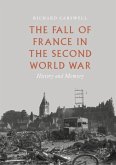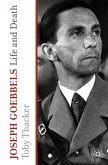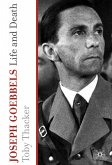This book analyses the successive appearances of Adolf Hitler in French fiction between 1945 and 2017. It discusses why, unlike what has been observed in the US and in the UK, it has proven problematic for French novelists to write about Hitler in their numerous fictional explorations of the Second World War. It examines the literary and ethical challenges of including historical characters such as Hitler in fiction, and demonstrates how these challenges evolved over time as memories of the Second World War also evolved in France.
jhopok
jhopok
Bragança offers is a series of detailed and convincing case studies that usefully illuminate the specific evolution of French memorial culture since the end of the war. It will be useful for anyone interested in cultural memories of the Second World War, French post-war literature, or perpetrator representations. (Joanne Pettitt, Modern & Contemporary France, Vol. 32 (1), 2024)
It offers an incisive and illuminating analysis of how and why Hitler s representation in French novels has evolved over time . The book s conclusion includes a comprehensive survey of other relevant works, and examines contemporary trends to ask what Hitler s future in fiction might look like. Insightful and lucid in both its broad analysis and readings of individual works, this book makes a very substantial contribution to the study of French cultural memory . (Matthew Phillips, The Year s Work in Modern Language Studies, Vol. 81, 2021)
It offers an incisive and illuminating analysis of how and why Hitler s representation in French novels has evolved over time . The book s conclusion includes a comprehensive survey of other relevant works, and examines contemporary trends to ask what Hitler s future in fiction might look like. Insightful and lucid in both its broad analysis and readings of individual works, this book makes a very substantial contribution to the study of French cultural memory . (Matthew Phillips, The Year s Work in Modern Language Studies, Vol. 81, 2021)








